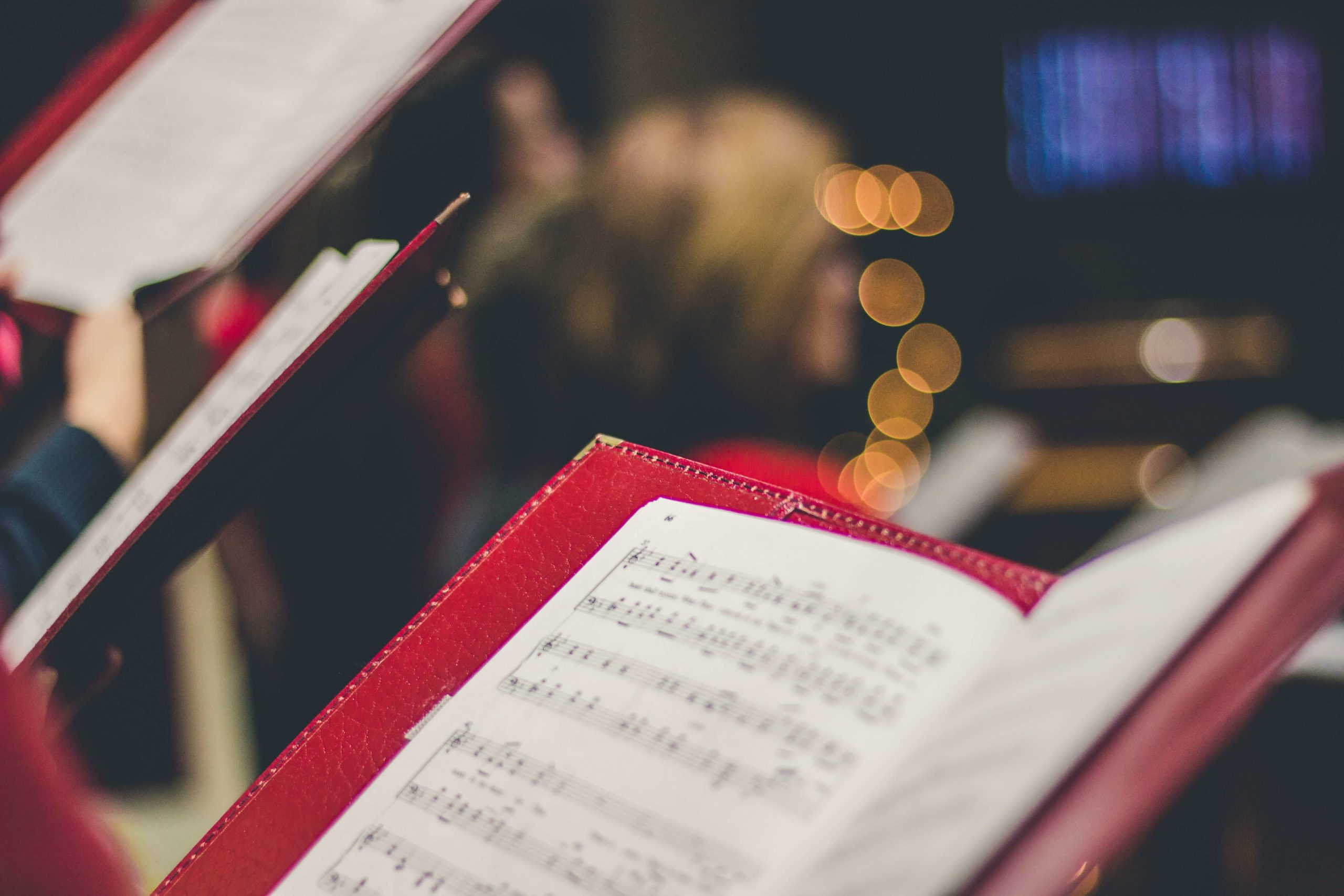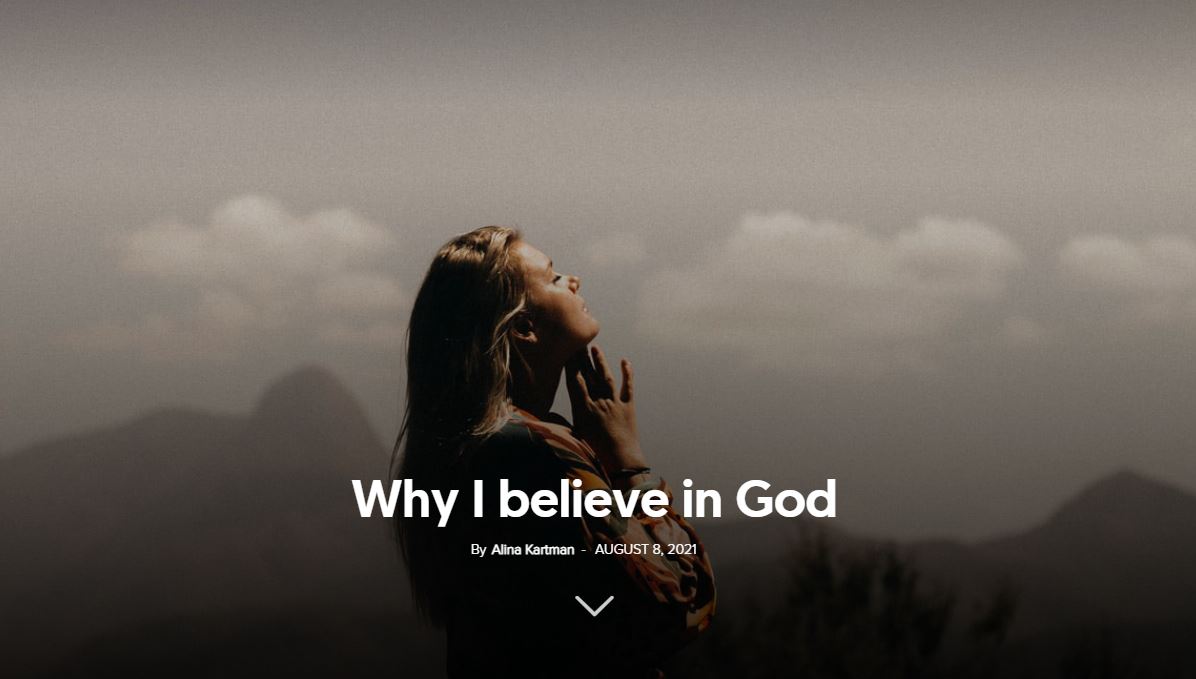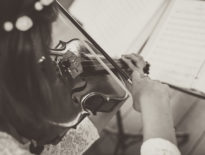I believe that doubt is a part of faith, not its opposite. It took me quite a few years to say this without feeling guilty. I needed to have many experiences before I could accept that questions are legitimate and not a sign of spiritual decay.
I could not say that the religious environment I grew up in discouraged an interrogative sprit, but the area within which you could venture was imperceptibly limited. Anything that crossed over the boundary was received with fear and carefully measured words.
Therefore, my first instinct was to refuse to write a piece on doubt, because the whole process implies becoming at least a little vulnerable. This I saved for the intimacy of my journal and discussions with my close friends. However, the doubts shared by others comforted me many times by the mere fact that they made me feel less alone. They gave me the courage to write about one of my oldest doubts. It is no longer among my most pressing ones. Perhaps this is why it’s easier to bring to light.
For a long time I was not concerned with faith itself, but with its effect on human behaviour, an effect that gave me serious doubts about its veracity. The gap—at times, the chasm—between professing one’s faith and the way people lived often gave me a bitter taste.
As I child, I remember how confusing it was for me to listen to people talking passionately about certain virtues or desirable behaviours, only to later see those same people doing the exact opposite of what they had talked about. From then on, it seemed astounding to me how separate these two territories could become in my mind, to prevent the ridiculousness of the situation from standing out.
It was hard to witness professions of love and incontestable proof of incompatibility together. I could not understand how someone could refuse sincere requests for forgiveness and at the same time truly be grateful for God’s forgiveness. I was tormented by the idea that one must make sacrifices for the sake of faith, only to later profit from them.
In some cases, manipulation, malice, and stinging ironies were evident among those who considered themselves a part of Christ’s family—even to a child’s mind. Perhaps one of the simplest and most visible examples of these discrepancies was singing songs of hope with sulky faces, so that one could not help but wonder if everybody was actually paying attention to the lyrics, or if they had ever experienced the joy they were describing.

I remember I was around 14 years old when I witnessed such an interpretation of a song. I think I had noticed the misfit between the lyrics and facial expressions before, but I was never so deeply affected by it. At the end, I went to the bathroom and, in an existential crisis characteristic of one’s teen years, I wept bitterly until an older friend found me. I remember her asking me what had happened, but it was hard for me to voice my fear that the people I loved and held as role models were living a lie.
I told myself countless times that merely talking about faith cannot deeply change one’s way of thinking and living.
The social effects I saw were not caused by faith, but by a lack thereof. The fact that the Christian message of love was misunderstood did not mean that it was less valid. Luckily, I also had examples of people whose faith made them better. But they seemed scarce; the exception that confirmed the rule. The rule being that, although it seemed beautiful, faith was powerless when faced with a person’s dark side. A faith that is not transformative, or that transforms people in the opposite direction than the desired one, was meaningless to me.
I sought to understand how one could escape a double life, where you could virtuously convince yourself that what you say is in agreement with what you do, when in fact they can’t be further apart. Some of the first things I realized was the reversed order of priorities, the straining out of a gnat and swallowing of a camel, the reason why Christ reprimanded the blind teachers. It took me a while to understand that the rules and rituals are collateral elements of faith and cannot replace it. Each time they are put first they hide a meaninglessness.
Going deeper, I realized that the principles of the Kingdom are so far from where we are, that it takes a lot of courage to see and accept the distance between where you are and where they reside. The more often you hide this distance, pretending that you have covered it, the harder it becomes to be authentic, to acknowledge your struggles, and your failings to other people. I believe religious environments that avoid ‘pointless’ discussions about failures and problems are fertile ground for cognitive dissonance and hypocrisy.
The concept of cognitive dissonance helped me to understand that gap I had encountered, and been astounded by, as a child. In broad lines, this says that people have a strong need to level out interior conflicts. When they do what repeatedly contradicts what they believe in, the mind resolves this powerful interior conflict by justifying the behaviour. When you grow up in an environment which favours cognitive dissonance, you become better and better at levelling out interior conflicts.
What from the outside seems completely irrational, becomes correct and coherent inside oneself. I have manipulated myself several times, and not even a high degree of introspection has helped me to break free from the traps I set for myself. What helped me were the people who loved me enough to honestly tell me what they saw, sometimes without realizing the effects, like that child from the tale of the emperor’s new clothes. They started out a process I could no longer initiate.
You may also want to read:
What helped me the most was taking responsibility for my own faith. It was easier to look to others and judge. It was easy to notice what was not going well and become angry. It was even easier to discredit it all because I was disappointed. I set aside what I believed in, together with the lies I had been telling myself about what I believed in, without wishing to build something else instead. Rebuilding is harder, especially when the pieces you need come with painful feelings. However, the authenticity of a faith that turns one into Christ’s likeness cannot come otherwise, I believe.
After much rebuilding, my faith now has fewer certainties that it ever had, but it’s mine. Since it is mine, as frail as it might be, what used to sting me about other people in the past no longer bothers me. My energy and critical spirit were transferred from the outside to the inside. It would be hypocritical to pretend that I have entirely succeeded or that my life is only going upwards. However, I am lying to myself less and less, and what I believe in has the power to transform my life. This seems to me an indisputable victory of faith.
Andreea Irimia talks about the way in which questioning her own faith gave her a deeper and more profound understanding of it, together with a high level of empathy towards those who, like her, struggle with doubt.




















